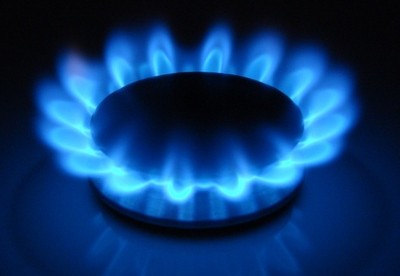Not Up to Scratch

Natural gas, as long-time readers of Now I Know may have learned about via the bonus item here, is odorless. As gas leaks are very dangerous — even the smallest spark can turn a peaceful, gas-filled room into a flaming inferno — gas companies give us a way to detect a leak. They add a colorless, flammable gas called mercaptan to the mix, which smells like rotten eggs or rotten cabbage. (The fact that it’s flammable isn’t a big problem because the natural gas is, too; you’re not making the problem any worse.) The overwhelming odor from the mercaptan informs people that something’s amiss.
But that’s not quite enough to get a person to call the gas company or fire department. In order to do that, you need to make sure people associate the rotten smell with a gas leak. That requires education, and to their collective credit, utility companies are pretty good about spreading that information. (The best evidence of this, perhaps, is the fact that many people think that the rotten smell is something inherent to natural gas itself.) Through ads and other, more creative methods, they’ve gotten the word out.
One of those ways, though, didn’t go so well. Or, maybe, it proved how well previous efforts had gone.
If you’re trying to create awareness around an odor, there’s a certain limitation to radio and TV advertising — while you can send sounds and, in the latter case, images to your customers, you can’t send them smells. But mail has no such limitation, especially because of scratch-and-sniff technology. We already know how to add the odor to whatever we’d like — it’s added to natural gas, after all — so adding a rotten cabbage stink to paper isn’t a big problem. (Using something which isn’t flammable may be a good idea, though.) Make it so the odor won’t be released until the consumer scratches at the area instructed and you have a pretty good tool at your disposal — one which many utility companies have used successfully in the past.
So when Baltimore Gas and Electric sent out 300,000 such smell-you-later cards in the summer of 1987, they weren’t doing anything out of the ordinary — it was, as the AP reported, part of an annual campaign. But that year, something went wrong. As the AP further reported (via the New York Times), “the smell of the brochure penetrated the mailing envelopes even without scratching.” Hundreds of consumers recognized the smell and, perhaps not realizing it was coming from the piece of mail sitting nearby (or perhaps acting with an abundance of caution), did exactly what they were supposed to do and called for help. The fire departments and utility hotlines were flooded with false alarms.
The utility company called the entire ordeal an “embarrassment,” withdrew the 300,000 cards as best as possible, and ended the smells-by-mail campaign going forward.
Bonus Fact: Baltimore Gas and Electric’s most recent campaign to promote gas leak awareness is “Captain Mercaptan,” a “natural gas safety hero [who] wants every kid to become natural gas safety hero.” But he isn’t doing it alone. The utility company has partnered with Marvel, the comic book giant, to help spread the word. There’s a free comic book starring Captain Mercaptan and Iron Man, available online here, in which the heroes save a bunch of children from a gas leak — even though Iron Man can’t smell it in his sealed-up suit.
From the Archives: Another Way to Milk a Cow: The bonus item, per above, is about mercaptan. The real story is about cow flatulence.
Take the Quiz: Name the nations that produce the most amount of natural gas.
Related: A plug-in natural gas detector.
